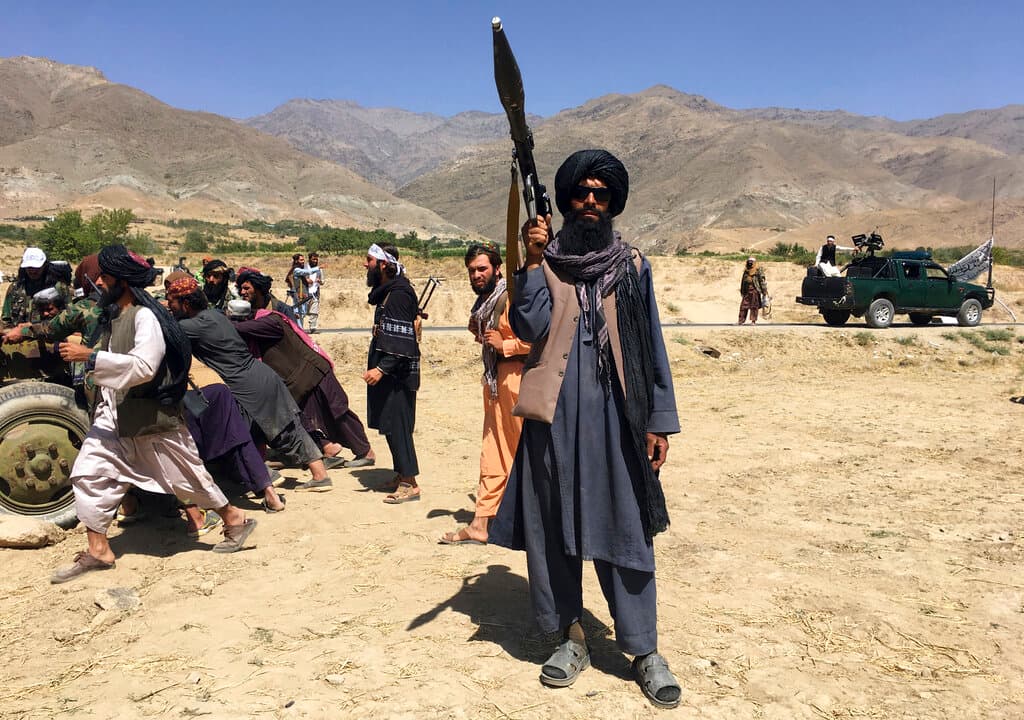America Needs a Long-Term Policy for Afghanistan
The most dangerous things happen when we aren’t looking.

The deputy CIA director, David Cohen, recently met with the Taliban’s intelligence chief at Doha, Qatar. When I learned of this meeting from two aides in the previous Afghan government, Qasim Wafayezada and Aref Dostyar, I was startled.
I was startled because it was the first time I was hearing of it — and because normally, news of such a meeting would have been plastered all over the virtual front pages. You couldn’t have missed it.
Yet it was barely covered. This highlights just how much our country, and the international community, has turned away from Afghanistan, despite our deep involvement there, off and on, since the 1980s.
After our disastrous withdrawal last August and the Taliban’s swift takeover, our government appears to have thrown up its hands and decided largely to say and do nothing, aside from offering some aid and taking the odd counterterrorism strike. The international community has followed suit.
President Biden’s national security strategy, finally released two weeks ago, includes the word “Afghanistan” only four times, a brief mention tucked into a section on terrorism.
“We are confident in our ability to maintain the fight against al-Qa’ida, ISIS, and associated forces from over the horizon,” the NSS says, “as we demonstrated with the operation to kill Ayman al-Zawahiri.”
“We will ensure Afghanistan never again serves as a safe haven for terrorist attacks on the United States or our allies,” it continued, “and we will hold the Taliban accountable for its public commitments on counterterrorism.”
From a realpolitik standpoint, the goal is correct. Our national interest is in a stable Afghanistan that does not become a safe haven for international terrorism.
Yet the policy — accept Taliban rule, continue to send aid, and cease engagement with the country at large — is unlikely to achieve it.
That objective, moreover, appears to have already failed. While the recent killing of Ayman Al-Zawahiri, the mastermind of the 9/11 attacks, is a notable achievement, the fact that he was in Kabul as a guest indicates that Afghanistan has already become a safe haven for international terrorists.
As Mr. Wafayezada pointed out in our discussion, history indicates that Taliban rule will likely be neither peaceful nor stable. Nor is it likely to be lasting: The Taliban’s ethnic persecution and lack of power sharing is setting the conditions for the next civil war.
The United States needs a broader policy toward Afghanistan, one that can be embraced and pursued by the international community over the long term.
Mr. Wafayezada suggests we engage Afghan society and political factors more broadly, and support intra-Afghan negotiations and the establishment of a coalition government, one that includes the Taliban. This can be debated. No matter how futile the Afghan cause may seem, though, averting our gaze is not the answer.
History has taught us that it is the times in between, when we aren’t paying attention, that world events happen.
Think of the post-World War I era, when a war-weary United States turned inward, and stopped paying attention to Germany. The nation crumbled, and the post-war period saw the rise of Adolf Hitler.
Think, too, of the years after World War II, when a confident America focused its attention on rebuilding Europe and Japan, and stopped paying attention to North Korea until 1950 and the communists’ sudden invasion of the South. American forces were caught unprepared, and it took three years of fighting to stabilize a crisis that we continue to deal with to this day.
There are many other examples, from Haiti, Lebanon, and Iraq, but Afghanistan may be the most striking. The 1980s were dominated by headlines about Afghanistan, and the American-backed mujahideen fighting against the Soviets. Once the Soviets left, though, we turned our attention elsewhere.
What happened? Civil war broke out. The Taliban took over. Then 9/11 happened, and we went back in, this time for 20 years, and more than $2 trillion.
More likely than not, what happens in Afghanistan over the next 10 years will determine whether we end up back in Afghanistan 15 years from now. It may seem preposterous today, but history will tell you it’s not.

